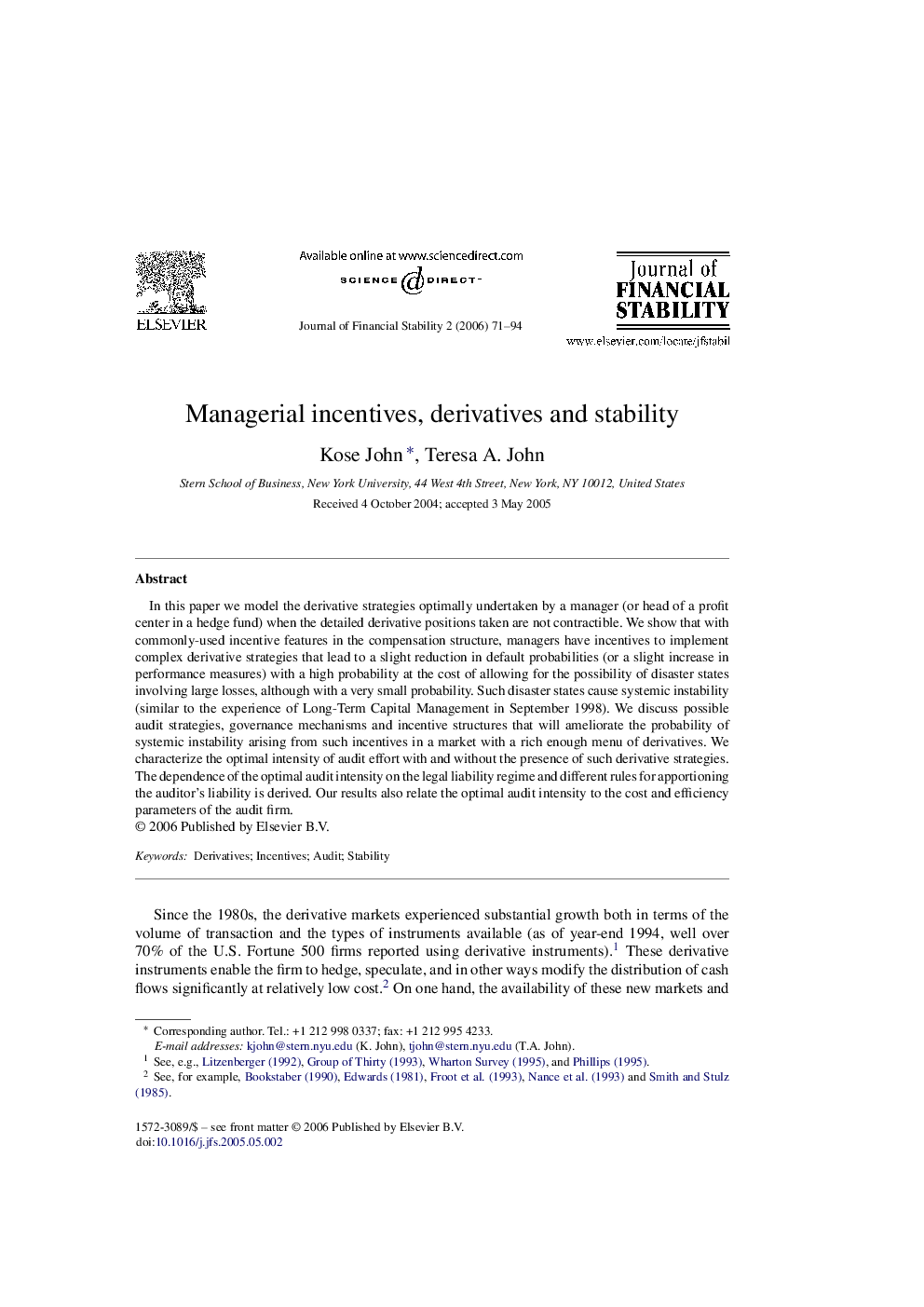| Article ID | Journal | Published Year | Pages | File Type |
|---|---|---|---|---|
| 999344 | Journal of Financial Stability | 2006 | 24 Pages |
In this paper we model the derivative strategies optimally undertaken by a manager (or head of a profit center in a hedge fund) when the detailed derivative positions taken are not contractible. We show that with commonly-used incentive features in the compensation structure, managers have incentives to implement complex derivative strategies that lead to a slight reduction in default probabilities (or a slight increase in performance measures) with a high probability at the cost of allowing for the possibility of disaster states involving large losses, although with a very small probability. Such disaster states cause systemic instability (similar to the experience of Long-Term Capital Management in September 1998). We discuss possible audit strategies, governance mechanisms and incentive structures that will ameliorate the probability of systemic instability arising from such incentives in a market with a rich enough menu of derivatives. We characterize the optimal intensity of audit effort with and without the presence of such derivative strategies. The dependence of the optimal audit intensity on the legal liability regime and different rules for apportioning the auditor's liability is derived. Our results also relate the optimal audit intensity to the cost and efficiency parameters of the audit firm.
